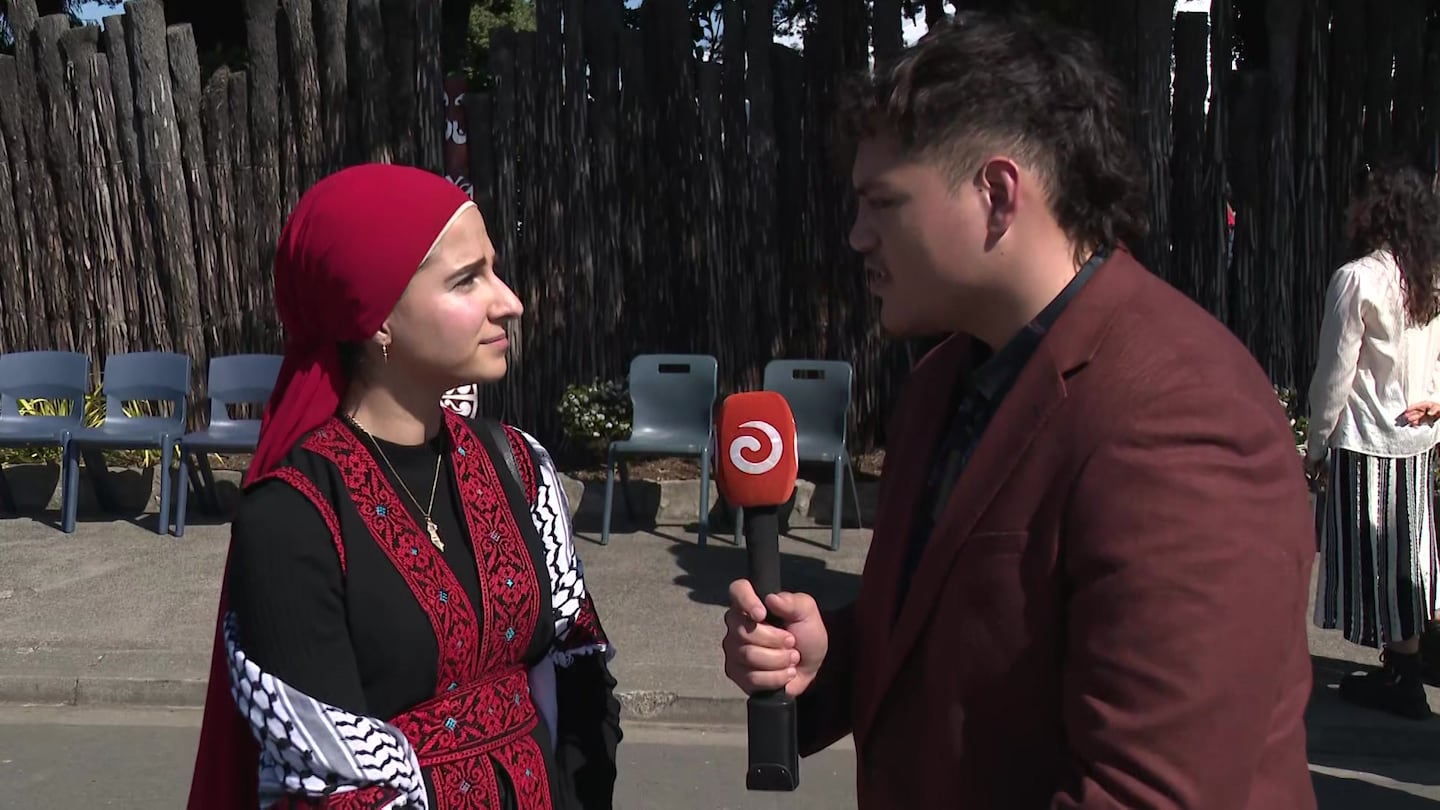Yasmine Serhan is a Palestinian living in Aotearoa who was invited as part of a Palestinian rōpu to pay their respects to the Kingitanga.
Serhan told Māori journalist Te Kawa Paora while Palestinians had their own grief and mamae for all they’d lost, they had come as tangata tiriti to share in grief with tangata whenua.
She said they recognised the Kīngitanga and its contributions for being able to be here as tangata tiriti.
“The future of Aotearoa is by Māori for Māori and we want to support that,” Serhan said.
Paora asked her why it was important for tauiwi to be at Tūrangawaewae.
“It shows we recognise that we want to be able to stand by Māori and live on this land in accordance with Māori,” she said.
“They’ve opened their doors to us, so we want to be able to honour them on their land in the way that’s most meaningful to them.”
“It’s quite hard to explain but I’m getting quite emotional thinking about it. It’s a symbol of us wanting to honour our place as tangata tiriti on this land,” Serhan said.
She said the multitudes of tauiwi and iwi from across the motu who showed up after the King’s death reflected the Kīngitanga call for kotahitanga.
Kotahitanga meant a lot to Palestinians, Serhan said, “We’ve been able to reunite with our whānau on this land.”
“The manaaki is next level. Every time I’m in an indigenous space you just see the level of organisation,” Serhan said. “There was a kuia giving us blankets cos we’re Middle Eastern, so we’re cold.”
She said they were welcomed and taken care of and, rather than feeling like outsiders, they felt part of it.
Paora referenced the Kīngitanga spokesperson Rāhui Papa’s words at the koroneihana where he discussed ancestral intelligence, and asked Serhan for her whakaaro.
“I believe we are here as manifestations of our ancestral knowledge,” she said.
She said both Palestinians and Māori have been persecuted but the younger generations were strong.
“The reason I think we’re strong is because we carry the ancestral strength and ancestral mana. Nothing can take that away from us.”
“Our existence and our resistance in today’s world is a result of our ancestral strength that we were able to reconnect with through connecting with our cultures.”




